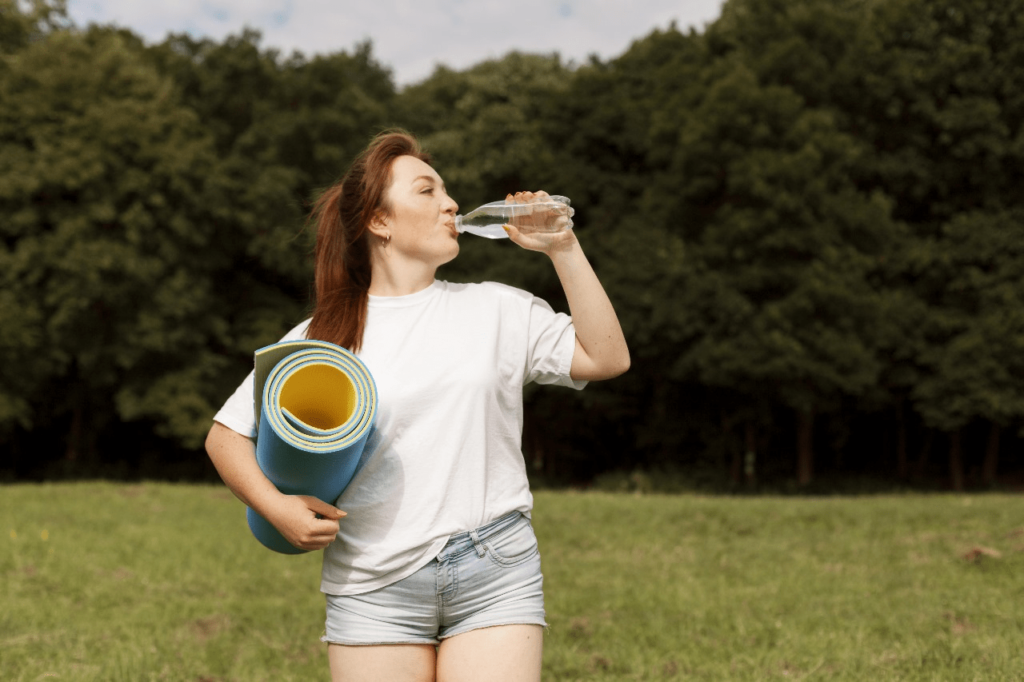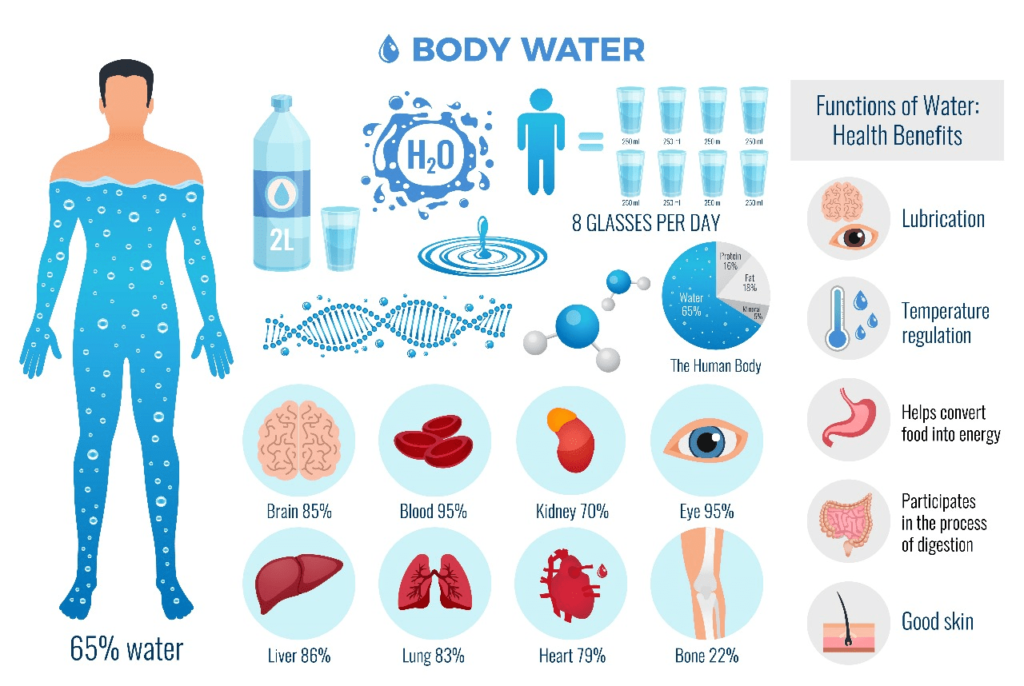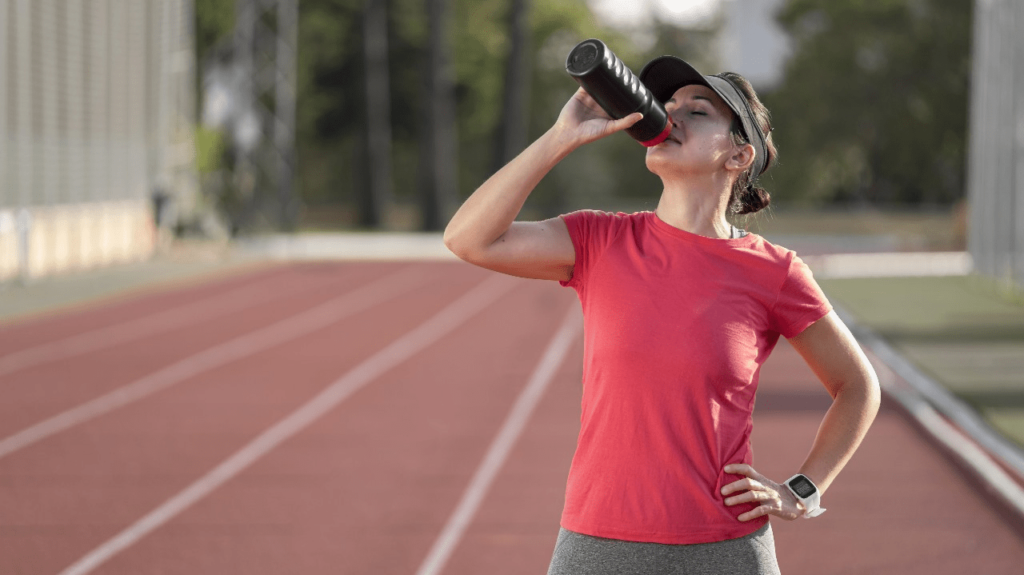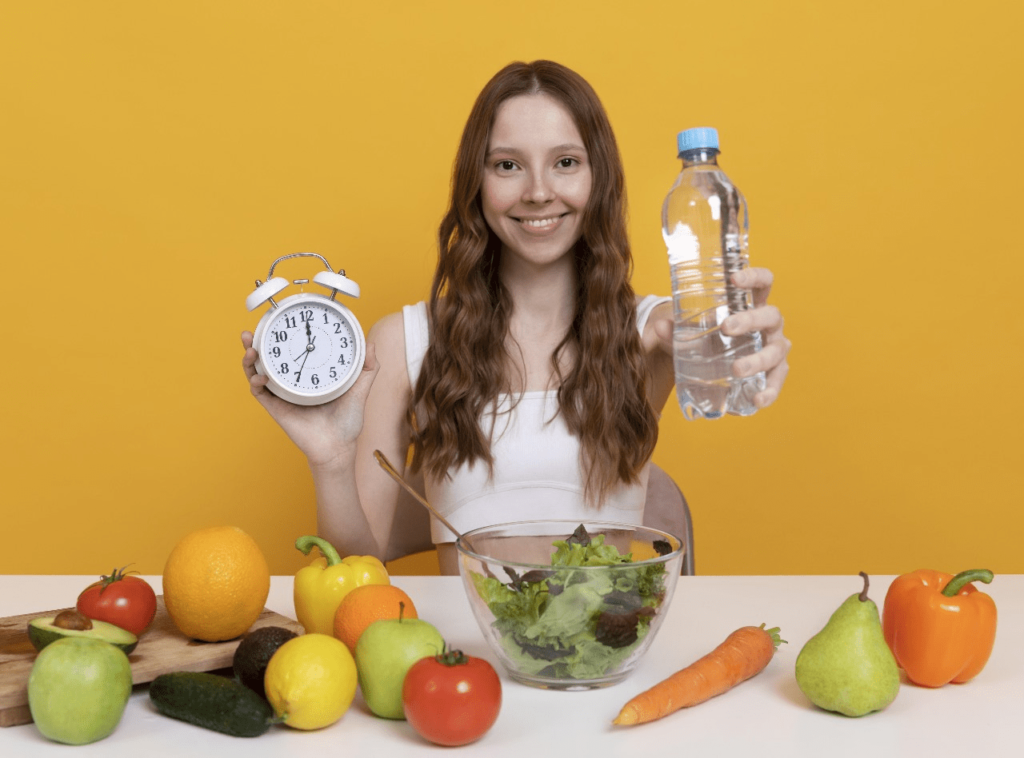Hydration Hub: Your Ultimate Guide to Optimal Hydration for Health and Wellness
August 1, 2024, By TeamMyHomeitem

Table of Contents
In a world bustling with buzzwords and the next big thing in wellness, one timeless truth stands unchallenged – hydration is non-negotiable for a healthy, vibrant life. The human body is, after all, a complex network of trillions of cells, reliant on water to function optimally. This comprehensive guide aims to not just underscore the importance of hydration but serve as a go-to resource for health enthusiasts looking to master the art of staying hydrated. Whether you’re an athlete looking to up your performance, or a skincare buff seeking that radiant glow, this is your Hydration 101 class.
Understanding the Importance of Hydration
The Role of Water in the Body

Water is essential to every system in the human body. From aiding digestion and nutrient absorption to regulating body temperature and maintaining joint lubrication, water is an irreplaceable fluid that keeps the wheels of life spinning. It’s no surprise that dehydration, even in its mildest form, can lead to fatigue, dizziness, and a host of other health issues.
Signs of Dehydration
Acknowledging the signs of dehydration is essential, as it is often overlooked. Not just thirst, these signs may include dark urine, dry mouth, reduced sweating, and even headaches. An important aspect of maintaining optimal hydration is recognizing these signs early and acting upon them.
Navigating Water Consumption
Daily Intake Guidelines
The often-quoted “8×8” rule (eight 8-ounce glasses of water a day) offers a simple benchmark, but individual needs vary based on sex, age, weight, and activity level. In reality, it’s best to tailor your intake to your personal needs, ensuring you consume enough water from both beverages and hydrating foods.
Enhancing Hydration with Other Beverages
While water should be your primary hydration source, other beverages like herbal teas and coconut water can be valuable alternatives, providing additional nutrients. However, be mindful of sugary drinks, which may contain empty calories and could lead to overconsumption without offering significant hydration benefits.
Strategies for Optimal Hydration
Hydration Planning
Developing a hydration plan can be as simple as keeping a water bottle with you at all times or as complex as scheduling water breaks throughout the day. The key is to make hydration a part of your routine, just like any other healthy habit.
Hydration Tracking
The use of water tracking apps or tools can be immensely helpful in keeping tabs on your hydration. These resources can provide visual cues and reminders to drink, helping you to meet your daily water intake goals consistently.
Workplace and on-the-go Hydration
Hydration doesn’t take a break when you do; therefore, it’s crucial to remain as diligent about water consumption at work or on the move. Strategies such as pre-filling water bottles, choosing foods with high water content, and avoiding excessive caffeine or alcohol can maintain your hydration levels throughout the busiest of days.
Replenishing Minerals and Electrolytes
Water alone may not suffice, especially for those leading an active lifestyle. Replenishing minerals and electrolytes lost through sweat is crucial for hydration, and there are various ways to do so, from consuming sports drinks to indulging in electrolyte-rich fruits like bananas and watermelon.
Hydration and Performance

Athletes’ Hydration Needs
For athletes, fluid needs are higher due to increased sweating and greater body fluid turnover. Timely and adequate hydration before, during, and after exercise can significantly impact performance and recovery, preventing fatigue and muscle cramps.
Staying Hydrated in Extreme Conditions
Extreme temperatures or altitudes necessitate heightened vigilance with hydration. Knowing and respecting your body’s needs in these conditions can prevent heatstroke, hypothermia, and other serious conditions.
Hydration for Healthy Skin
Our skin, the body’s largest organ, is also deeply affected by hydration levels. Optimal water intake can indirectly support skin health, preventing dryness, promoting elasticity, and potentially staving off premature aging.
Special Hydration Considerations
Hydrating in Illness and Recovery
During episodes of illness or when recovering from injury or surgery, the body’s demand for water may be greater. Ensuring you maintain hydration can aid in recovery and support the body’s healing processes.
Staying Hydrated as You Age
Aging can decrease the sensitivity to thirst, making older adults more vulnerable to dehydration. Consistently monitoring and addressing your hydration status becomes even more critical with age.
Beyond Plain Water
Infused Water
Elevate your hydration experience with infused water, which not only adds flavor but also imparts additional nutrients from its various ingredients. Lemon, cucumber, and mint are popular choices for their refreshing taste and potential health benefits.
Herbal Teas
Herbal teas not only contribute to your daily hydration but can also offer therapeutic effects. Selections like chamomile for relaxation or ginger for digestion are excellent hydrating options with added advantages.
Coconut Water
Dubbed “nature’s sports drink,” coconut water offers a natural source of electrolytes and is especially beneficial for rehydration post-exercise or in tropical conditions.
Hydration and Diet

Hydration-Rich Foods
Incorporating water-rich foods into your diet can be a stealthy way to increase your fluid intake. Cucumbers, celery, and watermelon are delicious choices that help keep you hydrated.
Balancing Water and Dietary Intake
Understanding how the foods you eat can contribute to your overall hydration is key. Consuming a well-balanced diet with an emphasis on high-water-content foods can complement your hydration efforts.
Hydration Myths Debunked
Do Other Beverages Hydrate as Well as Water?
Not all beverages hydrate equally. Alcoholic beverages and those with high caffeine or sugar content can have diuretic effects, potentially leading to increased fluid loss.
Can You Overhydrate?
While rare, overhydration, or hyponatremia, is a condition that can occur, particularly in endurance athletes who consume excessive amounts of water without proper electrolyte balance.
Practical Tips for Families and Groups
Hitting hydration targets for the whole family or a group can be a fun and collaborative effort. Incorporating water breaks into group activities, using hydration challenges, and making a game out of trying different hydrating foods and beverages can keep everyone on track.
Success Stories and Testimonials
Real-life accounts of individuals who transformed their health and well-being through proper hydration can be highly motivating. Sharing these stories can inspire others to make hydration a priority in their lives, too.
Tools and Resources for Hydration Awareness
Awareness is the first step toward change. Utilizing the plethora of tools and resources available, from wearable tech that monitors hydration to online communities that support and share tips, can help you stay educated and motivated on your hydration journey.
Crafting Your Hydration Plan
Evaluating your lifestyle, habits, and fluid intake is necessary to craft a personalized hydration plan that you can stick to. Consistency is key, and adapting your plan as needed ensures you meet your hydration goals for the long haul.
Hydration and Mental Clarity
Adequate hydration isn’t only beneficial for the body—it’s also crucial for mental clarity and cognitive function. Staying hydrated can help support focus, alertness, and overall brain health.
Conclusion
Optimal hydration is a fundamental pillar of health and wellness, affecting every part of the human experience. By understanding the importance of water in the body, navigating consumption needs, and implementing strategies to ensure adequacy, you can unlock the many benefits of being well-hydrated. Cheers to your ongoing health, vitality, and that awaited sparkle of well-being that comes from being truly, deeply, and purely hydrated.
